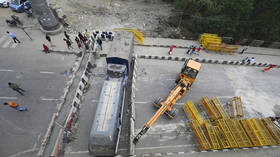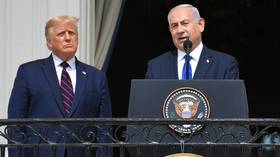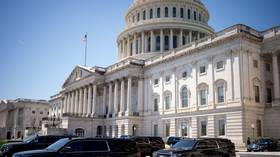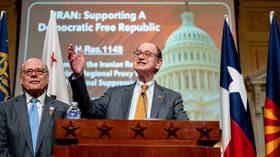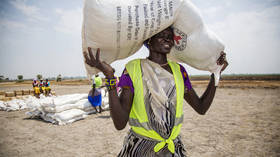WTO could prevent India from striking deal with protesting farmers – reports
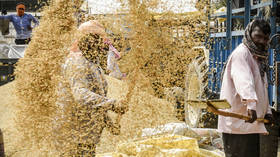
A group of the world’s largest agricultural exporters has raised concerns over India’s subsidization of farmers with the World Trade Organization (WTO), arguing that it harms the global market, the Indian Express reported on Thursday.
The Cairns Group, whose 25 members include Australia, Canada, Argentina, Brazil, Paraguay, and Uruguay, favors the liberalization of agricultural trade and opposes high levels of protectionism or subsidies.
It claimed last year that India’s support for farmers in the form of procuring crops at fixed prices was “distorting” global markets. The WTO is meeting later this month to discuss rules for subsidized procurement of food security stocks.
Members of the Cairns Group have submitted a proposal to slash “trade-distorting” farm support among WTO member countries. This would essentially put developing countries like India, with a population of 1.4 billion, on the back foot.
India has refused to discuss the proposal and said a permanent solution to the issue of public stockholding of food grains should be identified before any WTO negotiations proceed on other topics concerning agriculture, including domestic support to the farm sector.
According to an industry expert cited by the Indian Express, while WTO norms do not restrict governments from providing subsidies, there is no legal certainty that India will not be dragged into disputes, and therefore New Delhi is seeking a permanent solution.
”Our subsidy is abysmally low compared to what the US gives,” said Abhijit Das, a former head at the Center for WTO Studies, referring to subsidies per farmer. “But the WTO rules, unfortunately, are not on the basis of per farmer subsidy.”
The ‘Peace Clause’ agreed by WTO members in 2013 protects India from all legal actions relating to breaches of food subsidy limits, which means it cannot be dragged into disputes. If India were to introduce new schemes to benefit farmers, however, it would have to comply with the WTO’s 10% subsidy ceiling, Das noted. At a WTO ministerial meeting in Abu Dhabi later this month, India will be pushing for measures to amend the formula used to calculate the food subsidy cap.
While New Delhi is grappling with pressure at WTO, it is facing dual challenges in the streets as farmers are ramping up the pressure on the government to ensure the implementation of a Minimum Support Price (MSP) for the crops.
Thousands of farmers have amassed at the interstate borders of the Indian capital to demand reforms. It is the second massive protest in the past five years. In 2020-2021, farmers protested over various bills intended to deregulate and open up agricultural markets to the private sector. The laws were eventually rolled back by the administration of Indian Prime Minister Narendra Modi administration, an act widely seen as conceding to the farmers’ activism.
Where India Meets Russia – We are now on WhatsApp! Follow and share RT India in English and in Hindi
